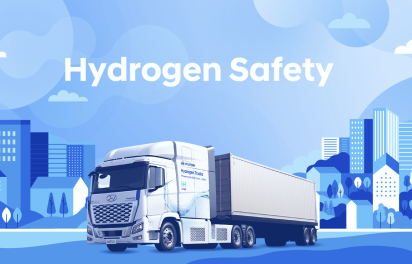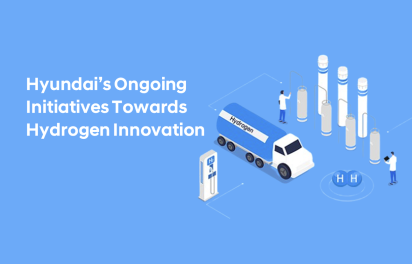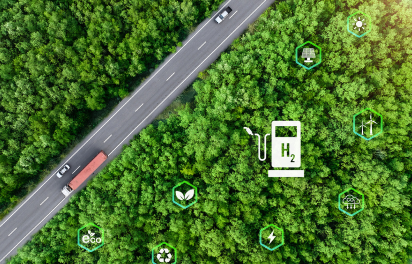The History of Hydrogen and Hyundai’s 25-Years of Progress
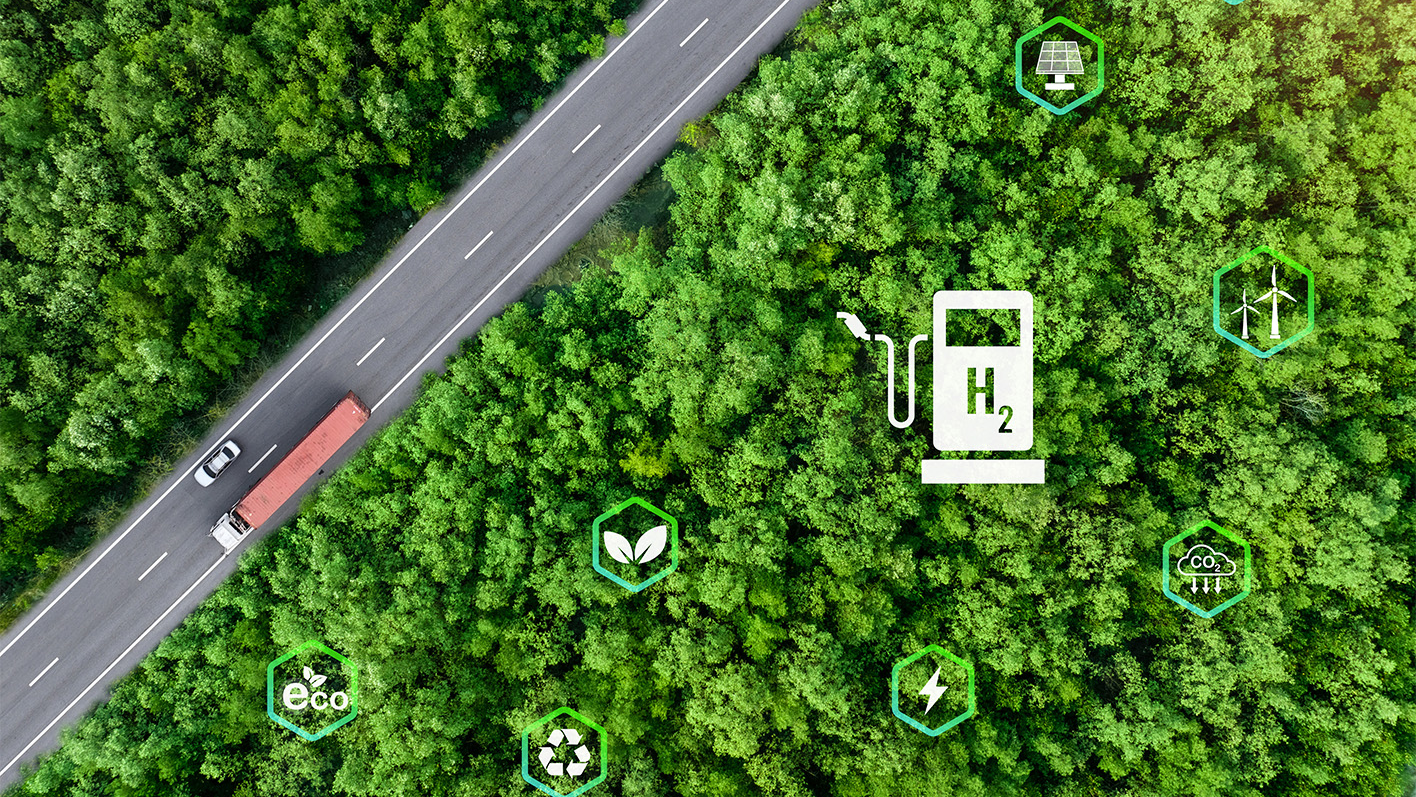

Ever wondered about the power of hydrogen? Let's take a trip to the future of green energy, where hydrogen confidently sits front and center. This seemingly humble element has earned the title 'fuel of the future,' and it's not hard to see why. Hydrogen allows us to store and transport variable outputs from renewables, harmonizing supply with demand and reducing emissions. It's a potential game-changer in diverse sectors, notably transportation, where it is viewed as a renewable energy solution to mitigate energy shortages and combat climate change.
According to the U.S. Department of Energy, Hydrogen delivers energy of about 120 MJ/kg, higher than diesel and gasoline with 45.5 MJ/kg and 45.8 MJ/kg respectively. Simply, 1 kg of hydrogen in a fuel cell equals a gallon of diesel's energy content. Stored in liquid form, hydrogen's higher energy density allows for fewer batteries on trucks, enabling drivers to travel longer distances and handle heavier payloads.
Hyundai, in its early stage, recognized the potential of hydrogen for its remarkable energy efficiency and substantial environmental benefits and is now dedicated to broadening hydrogen application across various domains. To grasp wider utilization of this promising fuel, we need to delve into the journey of hydrogen fuel itself—understanding its origins to envision its future.
How Did We Get to Use Hydrogen as a Fuel?
humanity's exploration of hydrogen energy has witnessed significant milestones over the course of 400 years (according to the Metropolitan Washington Council of Governments' studies). Take a journey back to 1766. It was British scientist Henry Cavendish who spotlighted hydrogen, distinguishing it through a reaction between zinc and hydrochloric acid. His explorations paved the way to understanding water's composition of hydrogen and oxygen. Building on this foundation, British scientists introduced the process of electrolysis in 1800, involving the breakdown of water into hydrogen and oxygen under an electric pulse, which remains a cornerstone in hydrogen production today.
In the 19th century, hydrogen's practical applications came to life as researchers discovered the principle of the fuel cell and developed combustion engines with hydrogen. Meanwhile, the expansion of hydrogen's role in various sectors was mostly seen in the latter half of the 20th century.
In 1959, engineer Francis T. Bacon developed the first operational five-kilowatt hydrogen-air fuel cell, the first mainstream fuel cell of the 20th century, which he aptly named the "Bacon Cell". This innovative design was quickly embraced, and not long after, inspired Harry Karl Ihrig to present the inaugural fuel cell-driven vehicle, a 20-horsepower tractor. Notably, astronauts aboard the renowned Apollo spacecraft and subsequent space shuttle voyages relied on hydrogen fuel cells, modeled after Bacon's prototype, for electricity, warmth, and water.
In the decades that followed, hydrogen emerged as a green alternative to conventional fuels, with both corporate entities and governments worldwide harnessing its potential. As we look back at this rich history, we see a remarkable trajectory leading to the present day.
A History Behind Hyundai’s Fuel Cell Commercial Vehicle
As such, hydrogen is not just a trend—it is a part of Hyundai Motor Company’s story. From its early beginnings in fuel cell research in 1998, Hyundai has been dedicated to pushing the envelope on hydrogen technology, leading the charge in the mass production of hydrogen fuel cell vehicles.
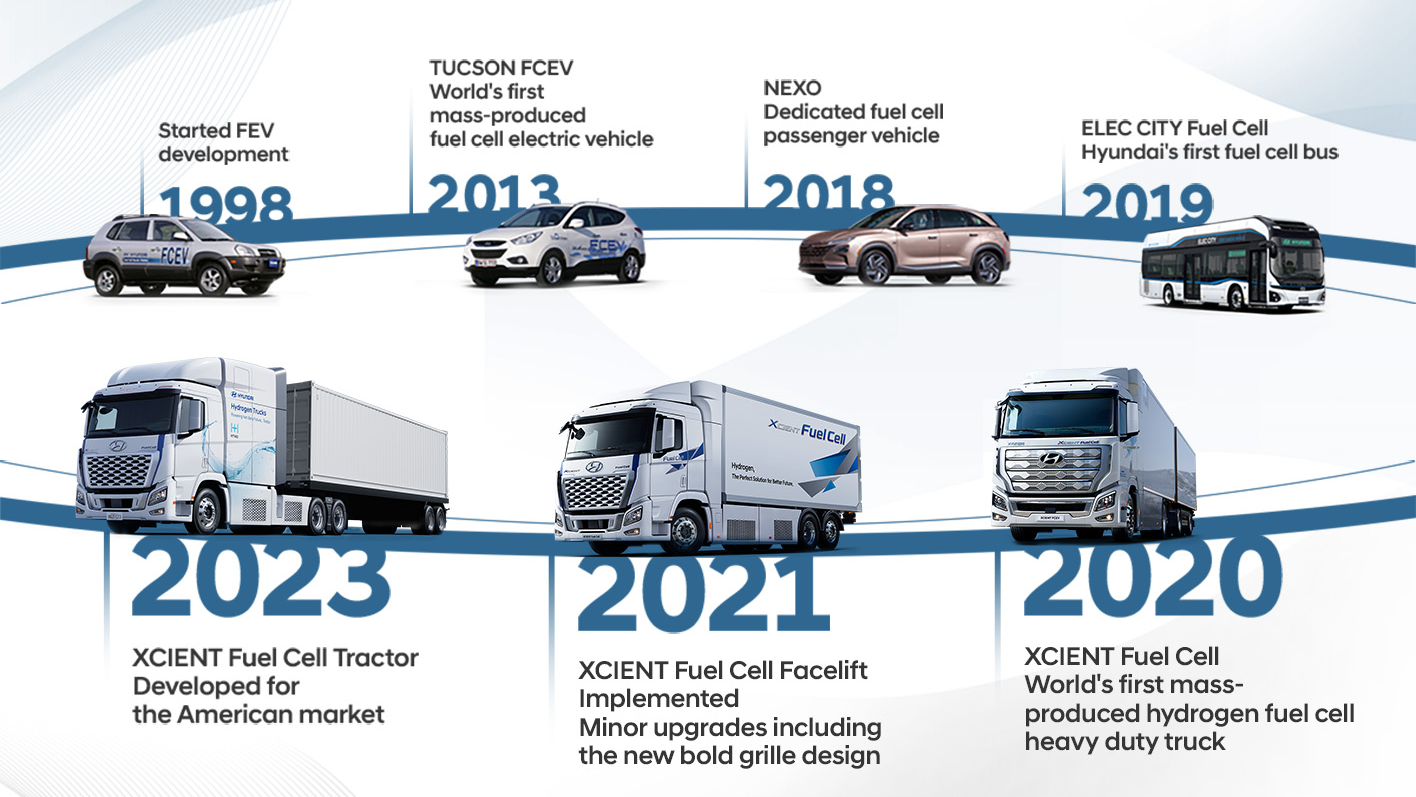

1998, Started FCEV development
- In 1998, a dedicated research team was established for Fuel Cell Electric Vehicle (FCEV) development, with the first step being Project Mercury, a collaboration between Hyundai and United Technologies Corporation (UTC).
2013 TUCSON FCEV World’s first mass-produced fuel cell vehicle
- After the successful showcase of Hyundai's first fuel-cell prototype, Hyundai debuted the world’s first mass-produced fuel cell vehicle, the ix35 Fuel Cell in 2013. With a 100kW fuel cell system and a certified 588km range, it offered performance akin to combustion engine vehicles, earning awards at the 2013 Future Auto Awards and Korea Technology Awards for its groundbreaking technology.
2018 NEXO, Dedicated fuel cell passenger vehicle
- Enter NEXO, Hyundai's first dedicated Fuel Cell SUV. NEXO boasts a 120kW system, three 52-liter tanks for a 609km range, and advanced features like ADAS as well as a high-performance filter for tackling air pollution, offering a comfortable, eco-friendly driving experience.
2019 ELEC CITY Fuel Cell, Hyundai’s first mass-produced fuel cell bus
- Following its successful test performance at 2010 G20 Seoul Summit, Hyundai's ELEC CITY Fuel Cell underwent continuous development, reaching mass production by 2018. In 2019, Hyundai hit a milestone by delivering its first mass-produced hydrogen-powered electric bus to Changwon City, Korea. ELEC CITY Fuel Cell bus can travel up to 550km on a single charge with a 180kW fuel cell system. In 2021, the same model got into trial runs in Munich, Germany.
2020 XCIENT Fuel Cell, World’s first mass-produced hydrogen fuel cell heavy duty truck
- After launching the world's first mass-produced fuel-cell vehicles, the ix35 and NEXO, Hyundai made another landmark by delivering the first 10 units of XCIENT Fuel Cell, the world's first fuel cell heavy-duty truck, to Switzerland. Since 2020, 47 of Hyundai's XCIENT Fuel Cell trucks have been operational in Switzerland. It continues to expand its application field worldwide with its field-proven performance. Equipped with a 180-kW hydrogen fuel cell system, XCIENT Fuel Cell could cover up to 400 km on a single charge. Hyundai's XCIENT Fuel Cells are currently in use dominantly in Europe and Korea, but also expanding in Israel, New Zealand, and Saudi Arabia.
2023 XCIENT Fuel Cell, tractor variation for the American market
- Following years of testing, in 2023, Hyundai revealed class 8 fuel cell electric tractor at ACT Expo 2023. This 6x4 XCIENT Fuel Cell tractor, equipped with two 90 kW hydrogen fuel cell systems (180 kW total) and 350 kW e-motor, boasts a range exceeding more than 500km per charge even when fully loaded.
Hyundai’s Commitment to a Sustainable Future
Hydrogen stands as a beacon for a sustainable, clean-energy future, and we're right at its heart. As Hyundai moves forward, we are committed to growing together with hydrogen's history, extending our expertise in hydrogen technology well beyond just transportation.
Hyundai Motor Group, a stalwart supporter of hydrogen energy, is at the forefront of this movement, fostering a healthier planet for all. Hyundai Motor Group’s visions 'Progress for Humanity' reflects our commitment to build a sustainable environment as they continue to innovate towards a zero-emission future!
The opinions expressed herein include external journalists' personal opinions and do not represent the Hyundai Motor Company's view in any way.
Download

